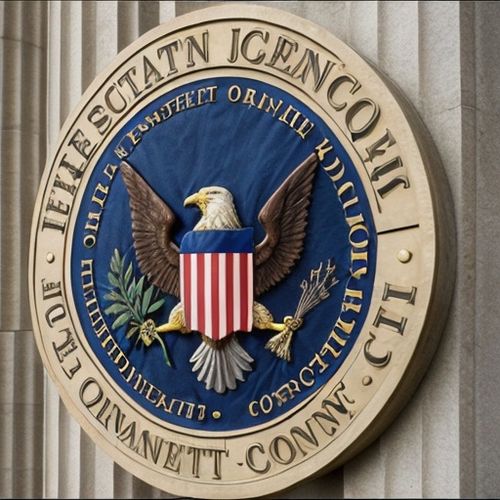In an era of rising living costs and economic uncertainty, understanding how to legally minimize your personal income tax burden has become more crucial than ever. While tax evasion is illegal and punishable by law, tax optimization through legitimate means remains an underutilized strategy that could put thousands of dollars back into taxpayers' pockets each year.
The concept of tax optimization often gets misunderstood as something only available to the wealthy or corporations. However, numerous strategies exist that ordinary wage earners, freelancers, and small business owners can implement to significantly reduce their taxable income. These methods don't require complex financial maneuvers or offshore accounts - just knowledge of the tax code and proper planning.
One of the most powerful tools for reducing taxable income lies in maximizing retirement contributions. Most countries offer tax-advantaged retirement accounts where contributions either reduce your current taxable income (traditional accounts) or grow tax-free (Roth accounts). For 2023, the IRS allows contributions up to $22,500 to 401(k) plans for those under 50, with an additional $7,500 catch-up contribution for those 50 and older. Similar limits apply to IRAs, though income restrictions may apply for Roth accounts. The magic of these contributions is that they simultaneously reduce your current tax bill while building your retirement nest egg.
Health savings accounts (HSAs) present another triple-tax-advantaged opportunity often overlooked by taxpayers. Available to those with high-deductible health plans, HSAs allow pre-tax contributions that reduce taxable income, grow tax-free, and can be withdrawn tax-free for qualified medical expenses. Unlike flexible spending accounts (FSAs), HSA funds roll over year to year and can even function as a supplemental retirement account after age 65. Maximizing your HSA contributions each year creates a powerful tax shield while building a medical emergency fund.
For self-employed individuals and small business owners, the tax code offers particularly valuable opportunities. Business expenses directly reduce taxable income, making proper tracking and documentation essential. Many entrepreneurs fail to claim all eligible deductions, from home office expenses to vehicle use, professional development costs, and even portions of meals and entertainment. The key lies in maintaining meticulous records and understanding what constitutes an ordinary and necessary business expense in your industry.
Tax-loss harvesting represents another sophisticated strategy particularly relevant for investors. This involves selling investments at a loss to offset capital gains from other investments. While the wash-sale rule prevents immediately repurchasing the same security, strategic tax-loss harvesting can significantly reduce your capital gains tax liability. This approach requires careful planning and often benefits from professional advice to navigate the complex rules effectively.
Charitable giving, when done strategically, can also serve as a powerful tax reduction tool. Beyond simple cash donations, donating appreciated securities held for more than a year allows you to avoid capital gains taxes while still claiming the full market value as a deduction. Donor-advised funds offer additional flexibility, letting you make a large contribution in a high-income year while distributing grants to charities over time. For those over 70½, qualified charitable distributions from IRAs can satisfy required minimum distributions while excluding the amount from taxable income.
Education-related tax benefits remain some of the most underclaimed deductions and credits. The American Opportunity Tax Credit and Lifetime Learning Credit can provide thousands in tax savings for those paying higher education expenses. Even student loan interest payments qualify for deduction up to $2,500 annually. For parents, 529 plan contributions offer state tax deductions in many jurisdictions while allowing tax-free growth for education expenses.
Location-based strategies have gained prominence in our increasingly mobile society. Several states have no income tax, while others offer special programs for remote workers or specific professions. Even within high-tax states, certain counties or municipalities may offer tax incentives for residents. While relocating solely for tax purposes may be extreme, considering tax implications when making life decisions about where to live can yield significant long-term savings.
The timing of income and expenses represents another crucial dimension of tax optimization. If you expect to be in a lower tax bracket next year, deferring income or accelerating deductions might make sense. Conversely, those anticipating higher future earnings might want to recognize income now. This strategy requires careful analysis of your career trajectory, potential bonuses, and changing life circumstances that might affect your tax situation.
For those with side hustles or freelance income, forming the right business entity can create additional tax advantages. While sole proprietorships offer simplicity, forming an S-corporation or LLC might provide opportunities to reduce self-employment taxes through reasonable salary and distribution strategies. Each structure comes with different compliance requirements and tax implications, making professional advice particularly valuable in this area.
Real estate investments offer some of the most substantial tax benefits available to individual taxpayers. Beyond mortgage interest and property tax deductions, depreciation creates paper losses that can offset other income for rental properties. The 1031 exchange provision allows deferring capital gains when selling investment properties by reinvesting in similar properties. Even homeowners can benefit from tax-free capital gains up to $250,000 ($500,000 for married couples) when selling their primary residence if they've lived there two of the last five years.
As tax laws continually evolve, staying informed about recent changes becomes essential for effective tax planning. Recent years have seen adjustments to standard deductions, retirement account rules, and various tax credits. What worked for tax reduction five years ago might no longer be optimal under current legislation. This fluid landscape makes ongoing education about tax strategies or working with a qualified tax professional more valuable than ever.
Ultimately, effective tax optimization requires viewing your financial life holistically throughout the year rather than just during tax season. Small, consistent actions like increasing retirement contributions, tracking business expenses diligently, or strategically timing income and deductions can compound into substantial tax savings over time. While the strategies mentioned here are all legal and accessible to most taxpayers, their effectiveness depends on individual circumstances - what works brilliantly for one person might offer minimal benefit to another.
The path to paying only what you legally owe in taxes begins with education and planning. By understanding the available options and implementing them thoughtfully, taxpayers at all income levels can retain more of their hard-earned money while remaining fully compliant with tax laws. In an environment where every dollar counts, these strategies can make the difference between just getting by and building genuine financial security.

By Benjamin Evans/Apr 24, 2025

By Olivia Reed/Apr 24, 2025

By David Anderson/Apr 24, 2025

By David Anderson/Apr 24, 2025

By Amanda Phillips/Apr 24, 2025

By Emily Johnson/Apr 24, 2025

By Sarah Davis/Apr 24, 2025

By Jessica Lee/Apr 24, 2025

By John Smith/Apr 24, 2025

By Grace Cox/Apr 24, 2025

By Olivia Reed/Apr 24, 2025

By Lily Simpson/Apr 24, 2025

By Noah Bell/Apr 24, 2025

By Megan Clark/Apr 24, 2025

By Noah Bell/Apr 24, 2025

By George Bailey/Apr 24, 2025

By George Bailey/Apr 24, 2025

By Natalie Campbell/Apr 24, 2025

By Daniel Scott/Apr 24, 2025

By Benjamin Evans/Apr 24, 2025